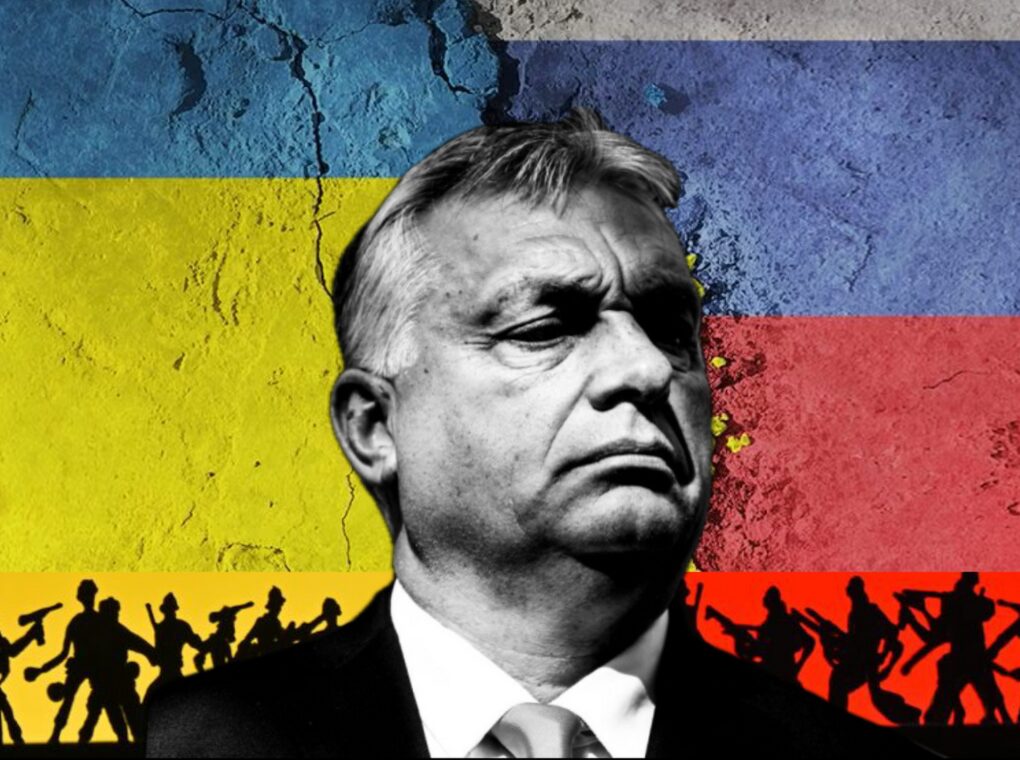The rift between Hungary and its Western allies has widened dramatically in recent months, fueled by Hungarian Prime Minister Viktor Orban’s increasingly pro-Russian and anti-Ukrainian stances. He recently stated that Russia has won the war and even refused to sign the EU joint statement backing Ukraine ahead of Putin-Trump summit.
As speculation mounts about so-called “regime change” plots, the stage is set for a significant test of the political future not just for Hungary, but for the cohesion of the European Union and NATO at large.
Orban’s Putin Tilt Triggers Alarm
Viktor Orban has long been considered Moscow’s closest ally within the EU. While most of Europe has sought to isolate Russia following its war in Ukraine, Orban has maintained close personal and economic ties with Vladimir Putin. Hungary stands apart in its refusal to support sanctions against Russia, blockades arms shipments to Ukraine across its territory, and openly questions Ukraine’s bid for EU membership.
In July 2025, Hungary’s controversial “peace mission”—which saw Orban visit Moscow, Washington, and Beijing—triggered outrage across the EU. Many leaders condemned his trip as an unauthorized foray into EU diplomacy, which Orban framed as an attempt at mediation but which critics see as a guise to legitimize Moscow and undermine Western strategy.
Allegations of EU and Ukrainian Interference
Amidst mounting tensions, Russia’s Foreign Intelligence Service publicly alleged that the European Commission and Ukrainian interests are trying to engineer Orban’s ouster, aiming to replace him with Peter Magyar—the rising star of Hungary’s opposition Tisza party. Moscow claims that EU chief Ursula von der Leyen is pushing Western governments to throw support behind Magyar, hinting at a coordinated plan to remove Hungary’s “independent” (i.e., Russia-friendly) leader.
Orban has capitalized on these allegations, using anti-EU and anti-Ukraine rhetoric to stoke fears of foreign meddling. State-backed campaigns depict Ukraine as a source of crime and chaos, while portraying Brussels as plotting to flood Hungary with “cheap labor” and undermine its security.
Domestic Pressures: The Rise of Peter Magyar
Peter Magyar, now the leading opposition contender, has gained popularity by exposing alleged corruption and calling for Hungary’s realignment with the EU’s mainstream. Magyar’s party is currently ahead of Orban’s Fidesz in national polls for the spring 2026 elections, giving rise to serious possibility that Orban could lose his long-standing grip on power.
Orban has responded by unleashing smear campaigns that accuse Magyar and his supporters of colluding with Ukraine and the EU to bring down the “national, pro-Hungarian peace government”. This tactic has roots in prior Orban strategies—blaming foreign actors for domestic problems—but with a sharper anti-Ukraine bias that seeks to polarize the Hungarian electorate.
EU Considering Drastic Measures
Brussels is losing patience with Orban’s obstructionism, especially as it relates to both support for Ukraine and the broader rule of law crisis in Hungary. The European Commission has considered not only withholding billions in EU funds but also escalating Article 7 proceedings that could strip Hungary of its voting rights in the EU Council. Moreover, new Hungarian legislation to limit the activities of foreign-funded NGOs and clamp down on dissent has drawn parallels to repressive Russian tactics, further raising EU concerns.
There is no formal EU mechanism for expelling a member, but a growing chorus of voices suggests that the remaining 26 states could rewrite EU treaties without Hungary, isolating Budapest and forcing a historic reckoning.
Ukraine’s Position
War-torn Ukraine views Orban’s stance as a significant obstacle. Relations have deteriorated due to Hungarian vetoes of EU aid and accusations of espionage and hostile intelligence activity. Kyiv regards Budapest as an outlier that enables Russian aggression and undermines the EU’s united front, and thus would likely welcome any leadership change that breaks Hungary’s Russia alignment.
Regime Change: Brewing or Bluster?
Despite swirling rhetoric, actual foreign-orchestrated regime change in Hungary is improbable. However, the unprecedented convergence of EU legal action, intense domestic opposition, and regional isolation combined with Orban’s high-wire gambit playing Moscow against Brussels does set the stage for a dramatic electoral showdown. The true test will come at the ballot box in spring 2026, with the possibility of a new Hungarian leadership realigning the country with its Western partners.
If Orban does fall, it will likely be as much due to domestic fatigue with his government’s style and substance as to any foreign plot. But the charges and countercharges of interference underscore the volatile crossroads at which Hungary—and, by extension, the entire European order—now stands.
